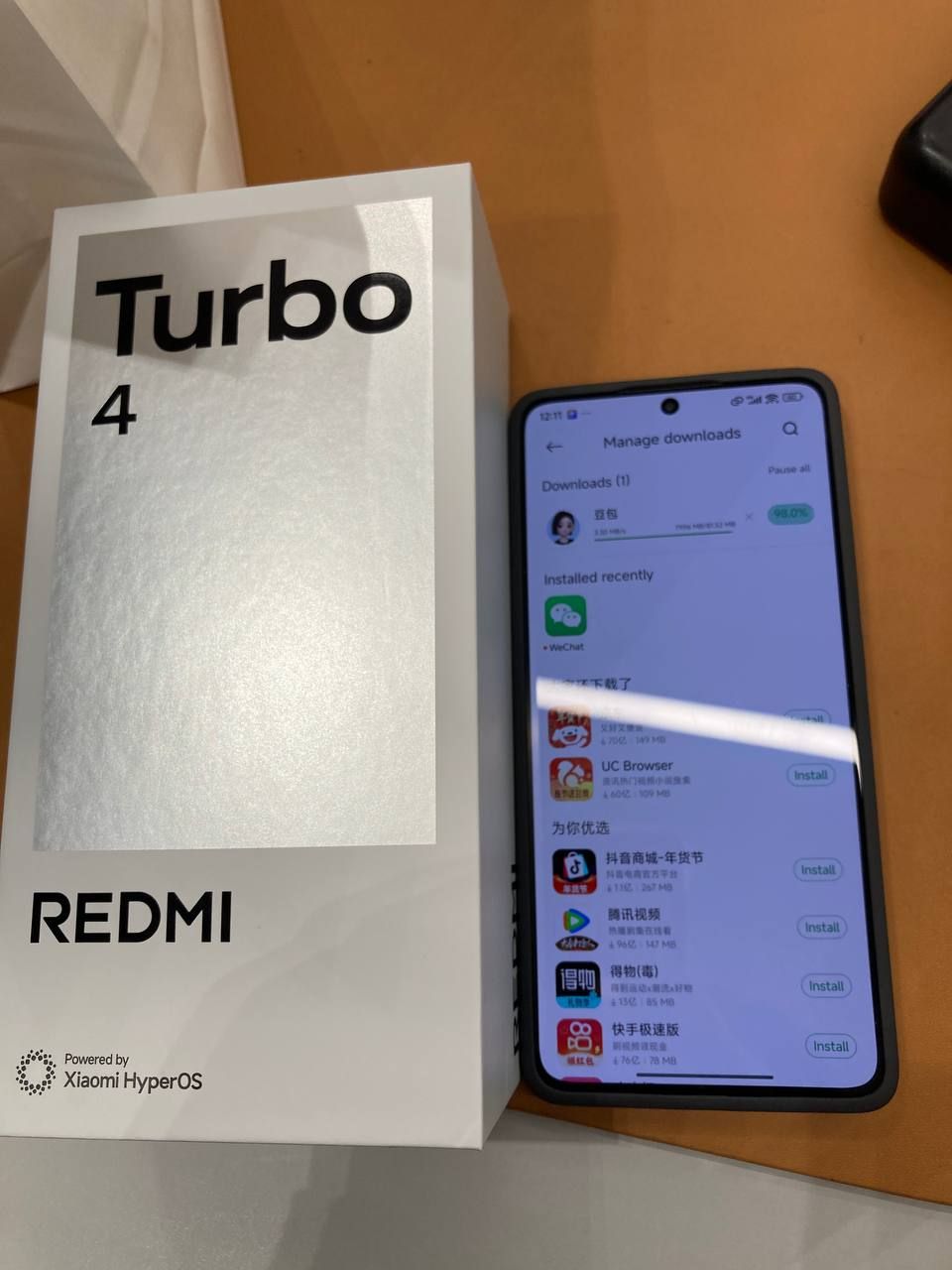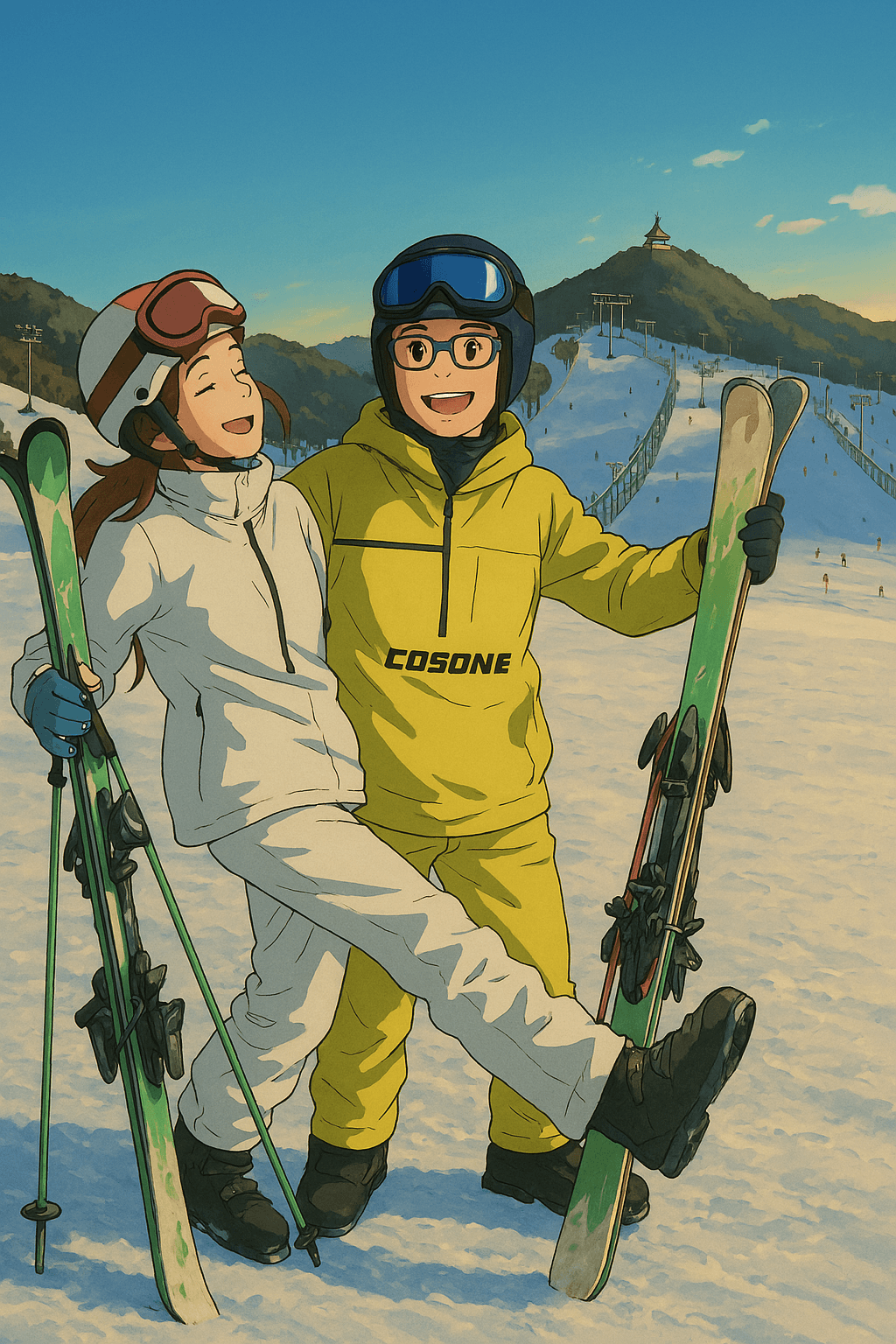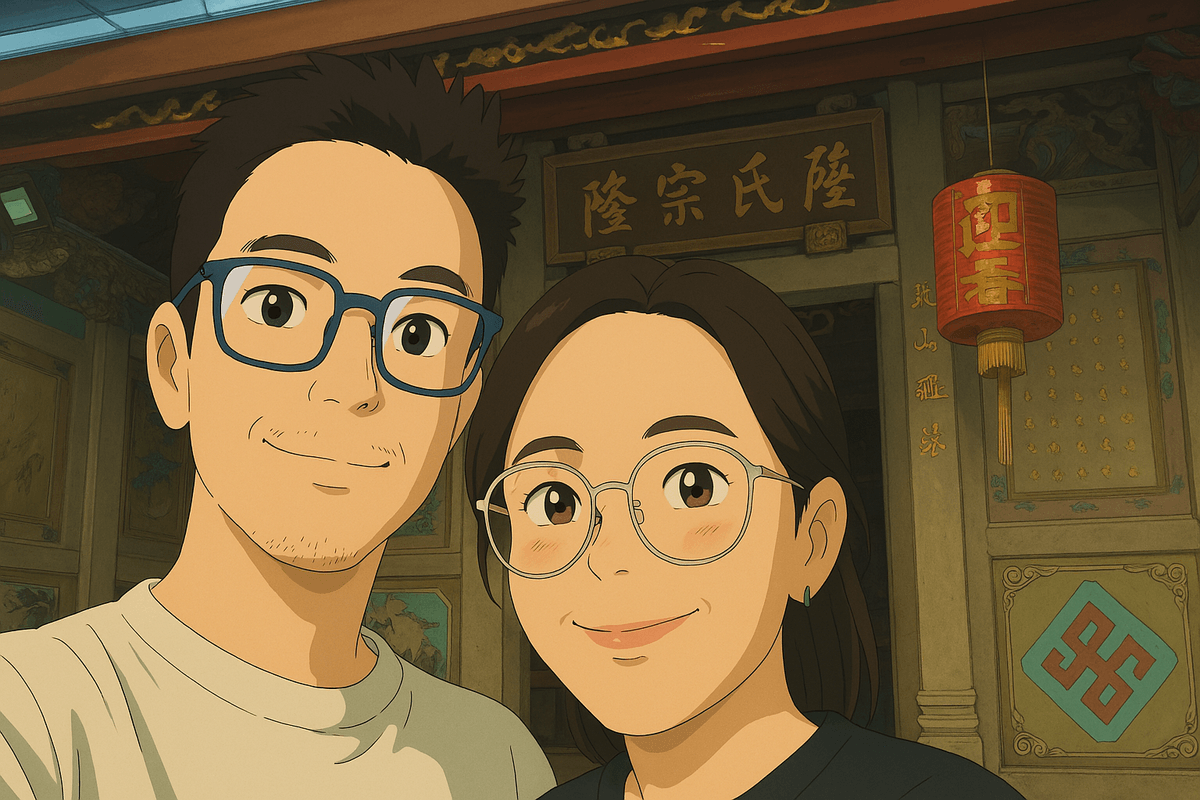Prologue: The Comfortable Lie
"I'm Singaporean Chinese, but I've never been to China and don't really know anything about China."
This was my well-worn response whenever someone asked about my heritage. It allowed me to sidestep deeper questions I couldn't answer—questions about ancestral roots, cultural continuity, and belonging. After all, I wasn't alone in feeling disconnected from "the motherland." Many Singaporean Chinese share this distance, tracing our national narrative back only 60 years and assuming that was all there was to our story.
Yet, this view would prove far too narrow once 2024 arrived.
Chapter 1: Dual Catalysts & First Steps
A Spark from Network School
Early in 2024, I found myself at Network School (NS), an intensive environment brimming with ambitious peers who seemed to know exactly who they were and what they wanted. Far from making me feel insecure, their drive lit a competitive fire under me. I could match them push-up for push-up, outwork them in the co-working space—so why should I accept knowing less about my heritage than they did? This wasn't a crisis of self-esteem; it was a call to excellence.
Touchdown in Guangzhou
Not long after, I landed in Guangzhou. The city bristled with contradictions: centuries-old temples alongside high-rise apartments, traditional medicine shops next to EV charging stations. I arrived with my usual "Singaporean Chinese who doesn't know China" line, but reality quickly challenged that assumption. A persistent cough and sleepless nights forced me to engage with the local healthcare system, talk to strangers, and confront my lack of cultural and linguistic fluency. Even as the city welcomed me, it revealed how little I knew.
Chapter 2: Tracing Roots, Tasting Heritage
A Casual Quest Turned Serendipitous
My wife and I traveled to Chenghai in Shantou on a whim to seek out my grandmother's relatives—barely my own direct lineage, but still part of my family tapestry. What began casually morphed into something more profound. Locals spoke Teochew (潮汕话), a dialect I'd never formally learned, yet I found myself understanding entire conversations. It felt like unlocking a hidden file in my DNA, reminding me that some connections run deeper than conscious memory.
"Why look for roots?" people sometimes ask. But the point wasn't to find a specific village or even relatives who do not know me. It was to see where we came from—to acknowledge that 60 years of Singaporean history isn't the entirety of who we are.
The Echoes of Family Food
Walking through Guangzhou and Chenghai, I realized that the "random" foods I gravitated toward—wanton mee, assorted kueh—weren't random at all. My father's habit of bringing home kueh on weekends, my own default love of wanton mee at hawker centers…these weren't just personal preferences. They were echoes from a land my grandmother once called home, tastes carried across oceans and passed through generations.
It dawned on me that our default favorites might not be pure chance. Our ancestors' choices help shape our palates and behaviors long before we even realize it. We think we pick certain foods just because we like them, but maybe our "preferences" are etched into our lineage, woven into our sense of home and comfort.
Chapter 3: Confronting the Missing Masculine Energy
A Pattern Uncovered
The deeper I dug into family history, the more I sensed an absence. My father who's father left when he was young was raised primarily by his mother. He, in turn, passed along what he knew—which meant I grew up in a household dominated by feminine influence. Looking at close friends, I saw similar stories: fathers physically present but often emotionally distant, or entire family lines shaped mostly by maternal energy.
It struck me that we weren't alone. Our generation's struggle with balancing masculine and feminine qualities might be an echo of older societal shifts. As Nikola Tesla speculated a century ago, we've been living in a cultural moment where masculine and feminine energies have been in flux—and we're feeling the consequences.
Filling the Gap
Uncovering this "missing masculinity" wasn't about blaming our fathers or dismissing feminine strengths. It was about noticing a generational handoff that hadn't fully happened. Traits like direct confrontation, ambition, and competitive drive often felt underdeveloped in many of us raised primarily by mothers or female figures.
"The faults of the son are the failures of the father," says an old adage, but I see it more as a challenge than a condemnation. If I can see this gap clearly, I have the responsibility to address it—to recalibrate the balance of energies for myself and, one day, for my own children.
Chapter 4: Urban Contradictions: Modern Tech, Ancient Soul
Cities as Mirrors
China's cities hit you with their contradictions first - each one a living experiment in balancing old and new, control and chaos, tradition and progress. Shanghai wore its modernity like a well-fitted suit, every process optimized, every interaction streamlined. Unlike Singapore's need to constantly assert its progress, Shanghai seemed comfortable letting ancient traditions peek through its modern veneer.
Walking down Shanghai's Nanjing Road felt like that scene in Ratatouille when the country rat first encounters Paris. Despite growing up in Singapore and visiting numerous global cities, I found myself slack-jawed at how perfectly the city merged cutting-edge technology with old-world charm. The seamless integration was everywhere: digital payments announced by electronic chirps in ancient breakfast shops, drones flying "trash" down from mountaintops, electric DiDi cars with their distinctive green license plates gliding silently past centuries-old temples.
Beijing presented a different kind of balance. Here, authority and defiance danced a complex choreography. Police stood at every intersection, yet citizens pushed back against rules in ways I never expected. During one memorable ride, our driver engaged in a heated argument with officers over a U-turn violation. This wasn't the meek compliance I'd expected in a controlled state; it was a sophisticated social ecosystem where people knew exactly how far they could push and against whom.
The Tech Layer
The technological integration reflected this same complexity. While the systems were impressive - one QR code accepting multiple payment modes, audio confirmations freeing your eyes and hands for other tasks - they also created invisible barriers. As a tech-savvy Singaporean, I found myself surprisingly handicapped. Every app demanded a Chinese national ID, Google Maps was useless, and my attempts to navigate the local digital ecosystem with Douyin, Xiaohong Shu, and Baidu felt clumsy and inefficient.

The experience was humbling enough that I ended up buying a Chinese phone - partly out of necessity, partly to stay connected to this fascinating ecosystem. It was another lesson in adaptation: just as the cities had found ways to preserve tradition while embracing progress, I needed to learn how to navigate between different technological cultures.
This policy-driven approach—where EVs get green plates and cash payments are almost quaint—underlined a truth: technology is universal, but mass adoption depends on collective will. It's the difference between simply having the tools and actively designing a world around them.
Chapter 5: Touching the Next Level
The Mountain Test

Skiing at Nanshan was more than a winter vacation; it was a metaphor for growth. I'd grown comfortable on beginner slopes, but the advanced slope showed me just how unprepared I was. Only by tasting that higher difficulty could I see the gap in my skills—and know how to train for it.
I realized I'd seen this pattern before: driving on Malaysian highways at 180km/h right after getting my license, or working alongside hyper-competitive individuals at Network School. Those experiences weren't about recklessness; they were calibration points. They pushed me to see what was possible and to level up my baseline.
The lesson is consistent: sometimes you need to touch the next level to understand how to train for it. Each fall on that ski slope, each moment of terror on that highway, each interaction with those high-agency individuals - they weren't just challenges to overcome. They were calibration points, showing me what's possible and how far I still have to go.
Chapter 6: Returning with New Eyes
The NPC Paradox
In public restrooms across China, there were always attendants meticulously mopping floors and wiping mirrors. Were they "NPCs" (Non-Player Characters) in the grand scheme, or were they simply people with a role that might appear mundane to outsiders? It was easy to assume such jobs were meaningless, yet there's a humanity to ensuring everyone has a place—even if it looks redundant from afar.
This contrasted with the directness of daily life. People would argue openly with low-level staff or security, their confidence suggesting they understood exactly how far they could push within the system. Far from being timid under authority, many showed a street-level assertiveness that shattered my stereotypes of meek obedience.
The Journey Home
When I returned to Singapore, I realized my view of "home" had changed. China wasn't just a place on a map; it was part of a longer human narrative—one that shaped my family before Singapore existed. Suddenly, 60 years of Singaporean history felt both precious and brief in the context of thousands of years of Chinese civilization.
Chapter 7: Integration & Identity
NS in Retrospect
My time at Network School now made more sense. It wasn't just a group of overachievers pushing limits; it was also a reminder of how identity shapes ambition. My younger Kyrgyz friend at NS saw confidence in me long before I saw it in myself. Perhaps his cultural roots helped him recognize quiet strength—an approach that values humility without diminishing self-worth.
A Broader Understanding of Self
I started to see I was part of multiple overlapping stories:
- The ancient Chinese tale of innovation, migration, and continuity
- My father's migrant story, carrying ancestral foods and dialects to Singapore
- The modern story of Singapore's young nation forging its own traditions
- Humanity's grand narrative, stretching back hundreds of thousands of years
Being Singaporean Chinese no longer felt like a simplified label. Instead, it became a layered identity, one that embraced tradition and modernity, masculine and feminine energies, local and global perspectives.
Epilogue: Roots and Wings
The most profound revelation from this journey wasn't just about finding pride in Chinese heritage or understanding cultural roots. It was about recognizing my place in the greater human story. We are not just Singaporeans of 60 years, not just Chinese of 5000 years, but humans of 300,000 years. Each of us carries within us the accumulated wisdom, struggles, and triumphs of countless generations.
This perspective transforms everything. Those missing pieces of masculine energy in my family line? They're not just personal or cultural gaps - they're part of humanity's ongoing struggle to balance strength and nurture, progress and tradition, individual and community. The technological leaps I witnessed in China aren't just national achievements; they're human innovations building on millennia of progress.
The competitive drive that Network School awakened in me now makes perfect sense - it's the same force that drove our ancestors to explore, to innovate, to survive against overwhelming odds. When I stood at the top of that ski slope in Beijing, heart pounding, the fear I felt wasn't just personal; it was the ancient human instinct for self-preservation warring with our equally human drive to push boundaries.
Understanding this deeper context doesn't diminish our individual or national identities - it enriches them. My father's love for wanton mee, my inexplicable skill at table tennis, even my approach to challenges - these aren't just inherited traits or random preferences. They're threads in the vast tapestry of human experience, patterns that have proven successful enough to echo through generations.
Looking ahead, I see my responsibility more clearly. It's not just about reclaiming lost masculine energy or preserving cultural traditions. It's about understanding these elements as part of humanity's collective journey and consciously choosing which patterns to carry forward and which to transform. When I have children, I won't just be passing on Chinese culture or Singaporean values - I'll be contributing to humanity's ongoing story.
The nervous young man who landed in Guangzhou, apologizing for not knowing his heritage, has been replaced by someone who understands that our individual stories are small but significant chapters in a much larger narrative. We are all, in our own ways, both carriers of ancient wisdom and creators of future traditions.
This journey taught me that identity isn't about choosing between being Singaporean or Chinese, modern or traditional, masculine or feminine. It's about recognizing that all these apparent contradictions are actually facets of the human experience. Like those ancient temples standing proudly alongside modern skyscrapers, like the digital payments in traditional markets, like the young children speaking ancient dialects, we can contain multitudes because that's what humans have always done - adapted, evolved, yet remained fundamentally connected to our shared story.
This isn't the end of the journey - it's barely the beginning. But now I move forward with a deeper understanding: before I am anything else, I am human, part of an unbroken chain stretching back to the dawn of our species and forward into whatever future we create together.
